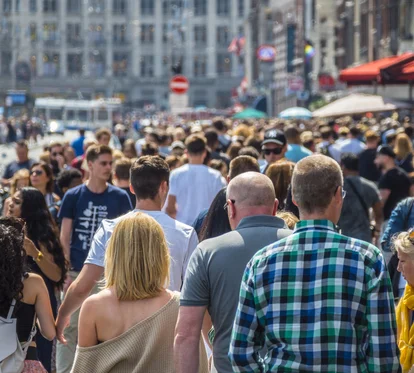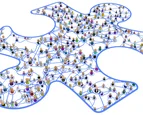Do you see any obstacles in that regard?
Paul: “Yes, there are some things that make decentralization complicated. Look, we are currently working with a system that is fundamental to our society. The moment you start tinkering with democracy, you see that many things start to shake. For example, the way our laws are set up, the way our municipality works, the way citizens participate et cetera. It takes quite a lot of adventure and decisiveness to think about decentralization and actually get going. The reason we don't do that right now is because we are quite risk-averse. We are mostly aware of what we can lose and less aware of our new opportunities! So I think we should take small steps, and avoid extremes. The one extreme - leaving everything as it is and not thinking about digital democracy - simply cannot be done. Then the government will soon drown in the wave of digitization that is simply coming. The other extreme - using digital tools too quickly for our society - is not good either. What we might be able to accomplish is to work with a municipality to think about how decentralization might become relevant.”
Edwin: “Risk-averse behavior is in the human DNA. We value more strongly what we lose than what we gain. So when we tell the government that they are losing all or part of their power, the human reaction, regardless of the systemic reaction, is to say "well, we don't like that.' The fear of losing things actually makes us more or less conservative and blind to improvement. Even though the risks need not be great at all. Another thing we have to deal with is that many people see the technology that could facilitate decentralization, namely blockchain, primarily as interesting technology in combination with crypto. But this technology offers much more. And then you automatically reach the next obstacle: for a lot of people, blockchain is still abracadabra. Blockchain is binary born (the technology is new, not a replacement for an already existing analog process- ed.) and it does not represent anything in terms of structure that we already did in the real world. Consequently, many people don't understand how it works. And in something you don't know, you don't invest. And then, an undesirably high energy consumption behind the required computing power does not make it more attractive. A non-argument against a system change, but often heard is, "we first need to investigate how stable this new technology is." Every negative piece of news about a blockchain or coin is then widely reported, quickly leaving people with the view that we don't know enough about blockchain yet. So the lack of understanding of how technical decentralization works is a very important argument as to why it does not take off immediately.”
What is technical decentralization and what role does blockchain play in it?
Paul: “You speak of technical decentralization when you decide not to have your data in a central place, but spread over a network of independent units (individually deciding nodes). These can only work independently on a decision if they can each assume that they have all the data and that it is 'true'. This is the role of blockchain, by which an algorithm ensures that each new block of data MUST be true because it is consistent with previous blocks. So blockchain is a network that no longer requires a central authority to recognize that the data is complete and true. That is exactly what you need for decentralization. People sometimes ask me why you would necessarily want to reduce or remove the power of a central institution with a technical solution. Surely you can do that through legal means? And the answer is Yes if it would be clear who owns the data. After all, with the traditional logic of our current legal system, that is not easy to determine.”



